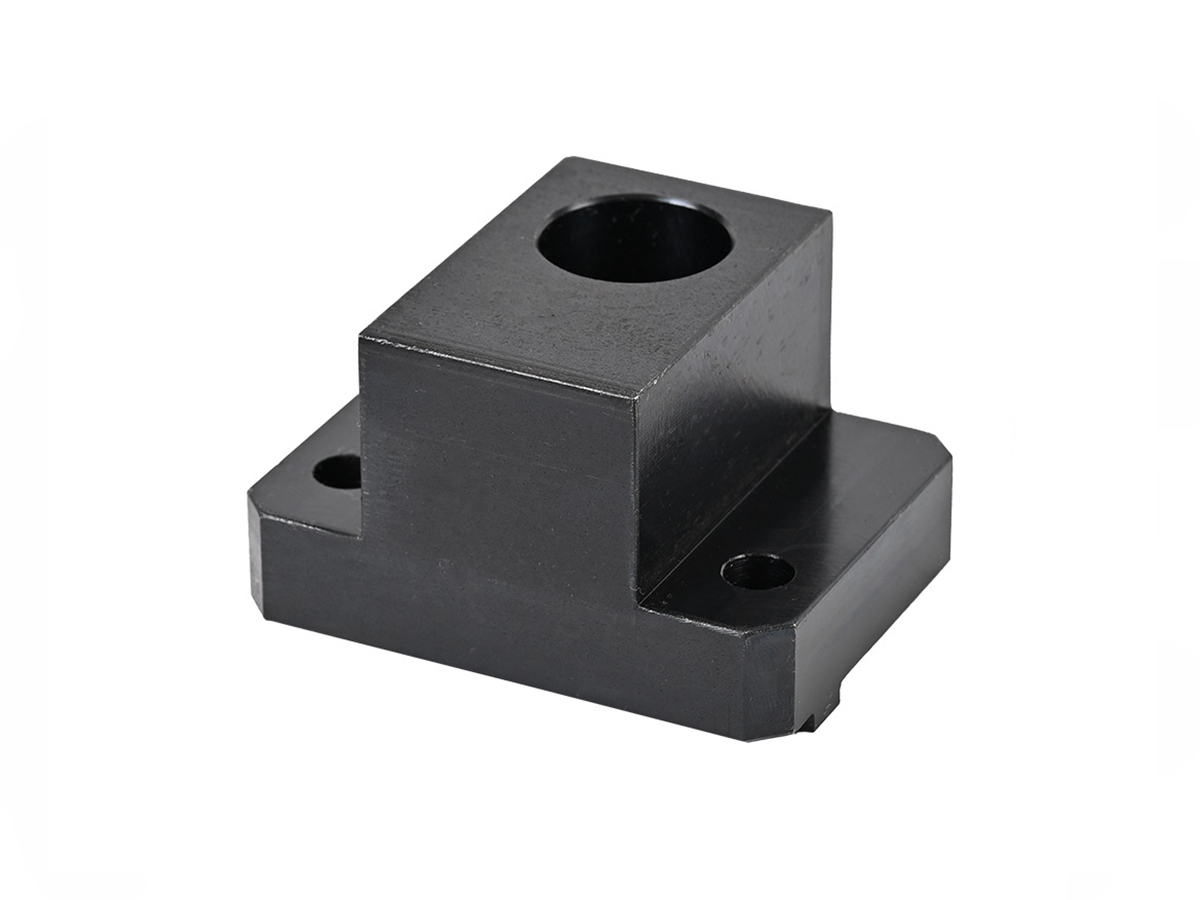Tailored CNC Machining Solutions for Critical Automation Components
Introduction
Critical components in automation systems require highly precise manufacturing to ensure system reliability, accuracy, and efficiency. Tailored CNC machining solutions deliver exceptional precision (±0.005 mm) and superior surface finishes (Ra ≤0.8 µm), enabling customized production of intricate parts such as robotic joints, precision actuator components, complex sensor housings, and specialized mechanical assemblies. These components are integral to industries like automation, robotics, and industrial equipment.
By utilizing advanced CNC machining services, manufacturers can precisely tailor critical automation components, significantly enhancing performance, durability, and reliability in demanding industrial environments.
Material Performance
Comparison Table
Material | Tensile Strength (MPa) | Hardness (HV) | Density (g/cm³) | Corrosion Resistance (ASTM B117) | Typical Applications | Advantage |
|---|---|---|---|---|---|---|
510-540 | 150-175 HV | 2.81 | ≥1500 hrs | Structural frames, actuator casings | High strength-to-weight ratio, excellent machinability | |
490-700 | 200-250 HV | 8.0 | ≥2000 hrs | Sensor housings, precision fittings | Exceptional corrosion resistance, strength | |
900-1100 | 330-370 HV | 4.43 | ≥2500 hrs | Robotic joints, load-bearing parts | Superior strength-to-weight ratio, corrosion resistance | |
360-400 | 150-170 HV | 8.5 | ≥500 hrs | Precision connectors, fittings | Excellent machinability, dimensional stability |
Selection Strategy
Material choice for critical automation components depends on mechanical properties, operational environment, weight constraints, and ease of machining:
Aluminum 7075-T6 offers high tensile strength (510-540 MPa), low density (2.81 g/cm³), and excellent corrosion resistance (≥1500 hrs ASTM B117), making it ideal for lightweight actuator housings and structural components requiring precise tolerances.
Stainless Steel SUS316L, with superior corrosion resistance (≥2000 hrs ASTM B117), medium hardness (200-250 HV), and good strength, is suitable for precision fittings and sensor housings operating in chemically aggressive environments.
Titanium Ti-6Al-4V provides exceptional tensile strength (900-1100 MPa), low density (4.43 g/cm³), and outstanding corrosion resistance (≥2500 hrs ASTM B117), making it optimal for critical robotic joints and high-load automation components.
Brass C360 is known for its excellent machinability, good strength (360-400 MPa), and moderate corrosion resistance (≥500 hrs ASTM B117), ideal for precision connectors and fittings requiring tight dimensional accuracy.
CNC Machining Process
Process Comparison
CNC Machining Technology | Dimensional Accuracy (mm) | Surface Roughness (Ra µm) | Typical Applications | Key Advantages |
|---|---|---|---|---|
±0.005-0.01 | 0.4-1.0 | Complex sensor housings, custom brackets | Precise geometries, excellent detail | |
±0.005-0.01 | 0.6-1.2 | Shafts, actuator rods, fittings | Efficient production, cylindrical accuracy | |
±0.002-0.005 | 0.05-0.2 | Bearings, sealing surfaces | Ultra-precise finishes, minimal friction | |
±0.003-0.008 | 0.2-0.8 | Intricate robotic joints, complex assemblies | Advanced precision, flexibility |
Selection Strategy
Selecting the appropriate CNC machining process ensures precision, durability, and optimal functionality:
CNC Milling is ideal for machining detailed geometries such as complex sensor housings and custom structural brackets, maintaining tight tolerances (±0.005 mm).
CNC Turning efficiently produces precise cylindrical components like shafts and actuator rods, offering dimensional consistency even in high-volume scenarios.
CNC Grinding achieves exceptional accuracy (±0.002-0.005 mm) and fine surface finishes (Ra ≤0.2 µm), critical for precision bearings and sealing surfaces requiring minimal friction and maximum reliability.
Multi-axis CNC Machining allows the production of intricate components like robotic joints, significantly reducing setup time and enabling complex geometries with precision down to ±0.003 mm.
Surface Treatment
Treatment Comparison
Treatment Method | Wear Resistance (HV) | Corrosion Resistance | Max Operating Temp (°C) | Typical Applications | Key Features |
|---|---|---|---|---|---|
500-700 HV | ≥1500 hrs (ASTM B117) | 300°C | Aluminum actuator housings | Durable oxide layer, thickness 10-25 µm | |
~600 HV | ≥1000 hrs (ASTM B117) | 400°C | Precision connectors, fittings | Uniform coating, thickness 25-50 µm | |
850-1000 HV | ≥1200 hrs (ASTM B117) | 450°C | Shafts, joints, high-wear parts | Increased hardness, thickness 10-30 µm | |
Moderate | ≥800 hrs (ASTM B117) | 250°C | Stainless steel sensor housings | Chemical surface enhancement, ASTM A967 compliant |
Selection Strategy
Selecting suitable surface treatments significantly improves component performance and lifespan:
Anodizing creates a robust oxide layer (10-25 µm thickness), with corrosion resistance exceeding 1500 hours per ASTM B117, ideal for aluminum parts.
Electroless Nickel Plating provides uniform coatings (25-50 µm thickness), achieving corrosion protection beyond 1000 hours per ASTM B117, suitable for connectors and fittings.
Chrome Plating yields very hard surfaces (850-1000 HV), providing excellent wear resistance and corrosion protection (≥1200 hrs ASTM B117), ideal for shafts and joints.
Passivation complies with ASTM A967 standards and enhances corrosion resistance to ≥800 hrs (ASTM B117), ideal for stainless steel parts.
Quality Assurance Procedures
To ensure the highest precision and reliability of CNC machined automation components, rigorous quality assurance measures are implemented:
CMM Inspection: Verification of dimensional accuracy within ±0.005 mm using advanced Coordinate Measuring Machines.
Surface Roughness Testing: Profilometer analysis to confirm surface finishes meet required standards (Ra ≤0.8 µm).
Non-destructive Testing (NDT): Ultrasonic and radiographic inspections to detect subsurface defects and structural integrity.
Mechanical Property Verification: Tensile, hardness, and fatigue testing conducted per ASTM and ISO standards.
Corrosion Resistance Evaluation: Salt spray testing (ASTM B117) to validate corrosion protection efficacy.
Traceability and Documentation: Comprehensive records maintained in accordance with ISO 9001 quality management system requirements.
Industry Applications
Robotic joints and actuators
Custom sensor and electronics housings
High-accuracy mechanical assemblies
Specialized fittings for industrial automation
Related FAQs:
Why choose tailored CNC machining for automation components?
Which materials are best for critical automation parts?
How do CNC machining processes ensure precision and reliability?
Which surface treatments improve component durability?
What quality standards are essential for CNC machined automation parts?

